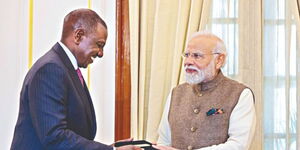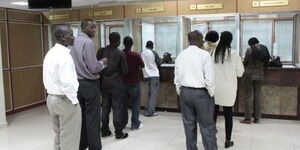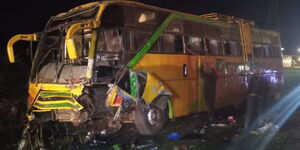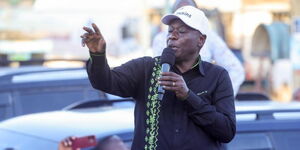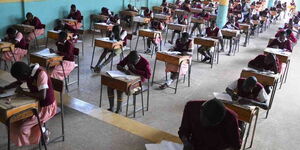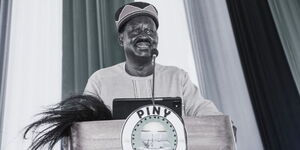As the case involving six Iranians accused of trafficking drugs worth Ksh8 billion along the Kenyan coast continues to unfold, detectives have unearthed crucial details that could help them identify the masterminds behind the scheme.
According to official records released on Friday November 14, detectives from the Anti-Narcotics Unit found seven electronic devices, including a GPS tracker.
The detectives believe these could help determine the origin of the shipment, the intended trafficking routes and the financiers behind the operation.
These details were revealed during court proceedings, when the prosecution informed the court that there was reason to believe the individuals were linked to a highly organised transnational cartel that uses maritime routes to smuggle synthetic drugs into the region.
On Saturday October 26, the unmarked vessel carrying the Iranians was intercepted around 630 kilometres off the coast of Mombasa by a joint team comprising the Directorate of Criminal Investigation (DCI), the Kenyan Navy, the Kenyan Coast Guard and NACADA.
The boat was put on radar by Kenyan security agencies after regional and international partners alerted them about a suspicious boat roaming in the Western Indian Ocean.
In the boat, detectives found 769 packages of illicit drugs believed to be methamphetamine, valued at around Ksh8 billion.
During Friday’s court proceedings, the prosecution successfully managed to convince the court to allow for the detention of the Iranians for a further 21 days, noting that investigators are pursuing critical leads before forwarding the file to the DPP for action.
The prosecution told the court that releasing the suspects before investigations are complete would jeopardise the multi-agency, internationally coordinated operation, which involves sensitive digital evidence and complex cross-border linkages.
This was after the case had come up for mention after Chief Magistrate Antony Mwicigi had directed that the prosecution provide an update on the welfare of the Iranians on November 14, after they had appeared weak and ill.
He had previously allowed the investigators to detain the suspects for 30 days, with the latest now meaning that the Iranians would be under police custody for 51 days.
The International Criminal Police Organisation (INTERPOL) is said to have played a critical role in nabbing the foreign nationals by overseeing search operations and ensuring rigorous crime scene management to support future judicial proceedings.
The operation came after intelligence was shared between the Regional Narcotics Interagency Fusion Cell (RNIFC) in Bahrain and the Regional Coordination Operations Centre (RCOC) in Seychelles.
In a statement on Tuesday, October 28, Interpol's marine officers noted that the coordinated operation was done through the support of the United States President Donald Trump's administration.
Two representatives from the US Naval Criminal Investigative Service (NCIS) participated in the operation to assist with communication with crew members and search operations.
Following Interpol and the US government's intervention, a multi-agency coordination team was immediately established under the chairmanship of the Kenyan Navy Deputy Commander.
After their arrest, the seized substances were taken to the Government Chemist for analysis to confirm their composition and purity.







